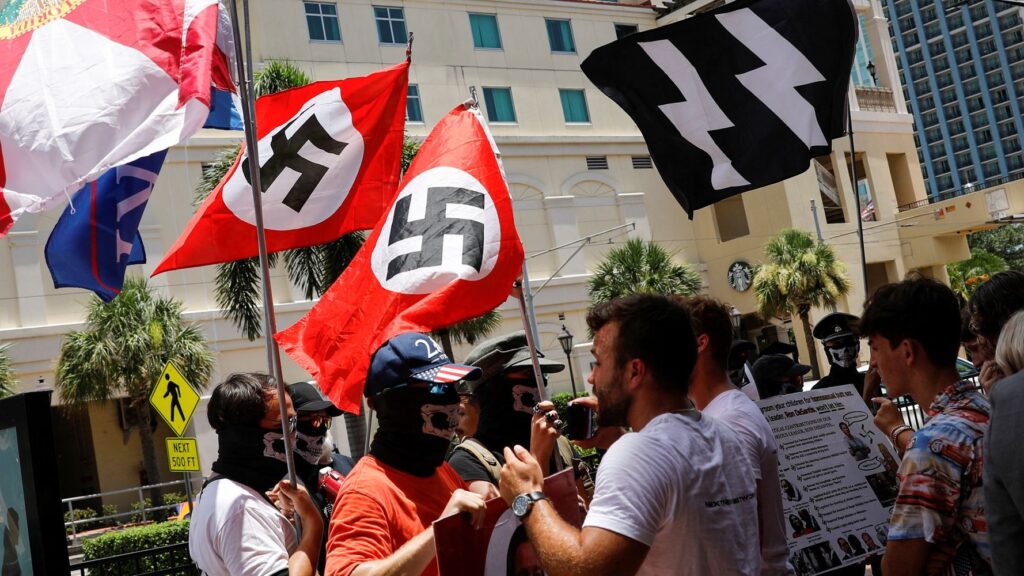
Our American culture famously celebrates freedom of expression. Freedom of speech is invoked as a catch-all justification for the most hateful of sentiments; the ACLU, defender of the First Amendment, has gone to court to protect the right of Nazi’s to march publicly while displaying swastikas and chanting anti-Semitic slogans.
The logic of freedom of expression is that any legal constraints imposed by government are bad and inevitably lead to bad outcomes. The theory goes that in the light of day, rational human beings will be able to judge what’s good and what’s evil for themselves, and if government constrains speech and expression the “free market of ideas” can’t work its democratic magic.
That theory is being sorely tested, as it has been repeatedly. The tension over what can and cannot be said is perpetual, and to borrow a sports analogy, the courts keep moving the goalposts to establish what speech is out of bounds.
For a while, the free speech debate was over obscenity, what words could be said publicly or included in a print publication. The late comedian George Carlin, following in the footsteps of Lenny Bruce, broke ground by uttering the seven words that could not be publicly said, all of which are now commonly used in everyday and commercial speech. It’s an illustration of the way the goalposts have moved over the past sixty years, and they’re still moving.
As a member of our city’s planning commission, the State of California requires I take a sexual harassment training course which outlines what can and cannot be said to others in the workplace. In other words, government places constraints on my freedom of expression and outlines the risks of ignoring such limitations. The law not only covers what can be said, but also facial expressions and physical gestures. Penalties for violating the law are considerable.
Regulating expression in the workplace, however, does not have matching restrictions in the public sphere. Neither visual nor verbal expressions of harassing expressions of hate are prohibited; to the contrary, they are protected under the First Amendment. In our ginned-up political atmosphere of dog-whistles, racist, and homophobic expression, is it possible to stem the increasing tide of violence without further legal constraints on expression?
Ironically, the GOP has no hesitation about infringing expression. Republicans in Florida have passed a “don’t say gay” law that restricts what can be taught in school. Similarly, book bans effectively muzzle expression. GOP suppression of language used in judicial decisions is even taking place. In the aftermath of WW2, the German government banned display of Nazi symbols like the swastika, but Germany did not have the history of freedom of expression that we enjoy in America. Given today’s social media and internet, would a ban on hate speech in America be possible or enforceable?
Laws exist that criminalize speech that’s an incitement to violence. Similarly, conspiracy to deprive others of life or liberty is punishable by law, even if the unlawful acts are never consummated. Should laws constraining expression of speech be enacted, would they help or hurt our society? It appears to depend upon who enacts such laws, and their intent. There is no clear answer. At present, the forces of hate seem to be advancing.
It may well be that endless conflict and competition over who can say what is our inevitable fate, a Manichaean struggle between good and evil.